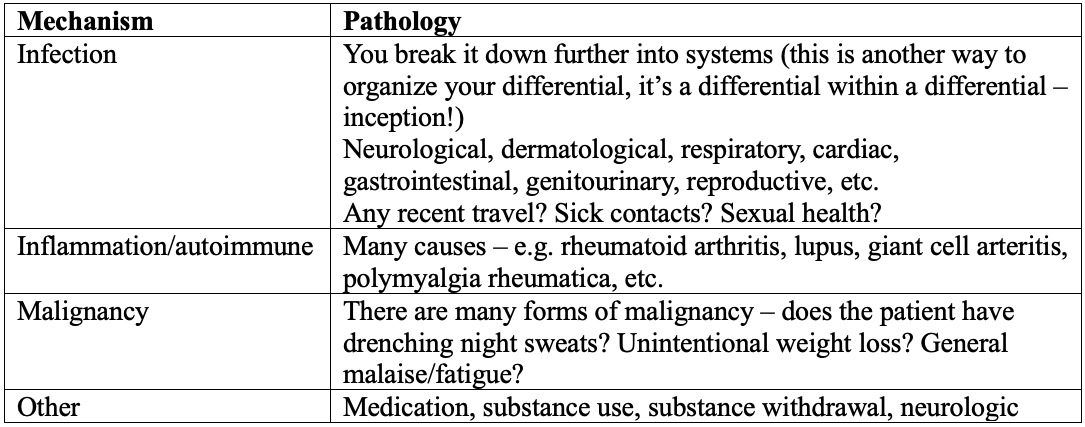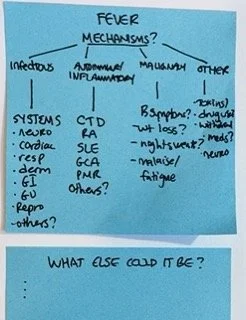Diagnostic Frameworks Part 1: Mechanisms Framework
There are multiple approaches to generate differential diagnoses. Let’s dive into the Mechanisms Framework for diagnostic problem solving.
Case: A 30-year-old female reports fevers that have been on and off for two weeks. Prior to evaluating her, you start generating possible diagnoses with a mental checklist. You know “fever” lasting for more than a few days has a long list of differentials.
You ask yourself the following questions: What causes fever? Not remembering the details from pathophysiology, you know at a basic level that fever is an elevation in the core body temperature, usually because of infection, inflammation/autoimmune causes, malignancy, or other factors. This is enough knowledge to generate a list of possibilities before seeing the patient. You organize your differential around different mechanisms that cause fever (infection, inflammation/autoimmune, malignancy, and other).
An example of using the mechanisms framework (*not an exhaustive list)
Exploring the mechanisms of fever will help ensure you don’t miss any importance causes. It will help guide what you want to ask your patient and what physical examinations you should complete. In this case, you can focus your history on infectious, inflammatory, and B-symptoms, as well as medication history and substance use. Although this is not a comprehensive list, it is a reasonable place to start. The practice of creating these mental checklists reduces the risk of diagnostic error (1).
Key Take Home Points:
1. The best question you can ask yourself when evaluating a patient: What else could it be? This acts as an excellent prompt to train your brain to think through all of the possibilities.
2. Many patient presentations can be broken down mechanistically – this will help you get to the bottom of even the most complex diagnostic dilemmas!
Stay tuned for part 2, where we will explore the systems diagnostic framework.
Writing your ideas down can help organize your thinking process.
References/Readings
1. Kämmer JE, Schauber SK, Hautz SC, Stroben F, Hautz WE. Differential diagnosis checklists reduce diagnostic error differentially: A randomised experiment. Medical education. 2021;55(10):1172-82.
2. Check out this excellent podcast on diagnostic reasoning, https://imreasoning.com/.
3. Fever of unknown origin resource: https://www.aafp.org/pubs/afp/issues/2003/1201/p2223.html


